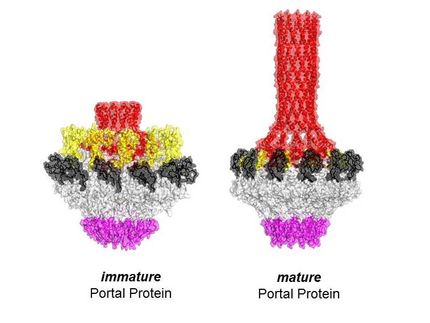Chicken pox vaccine saving children's lives
The widespread introduction of a chicken pox vaccine in Australia in 2006 has prevented thousands of children from being hospitalized with severe chicken pox and saved lives, according to new research.
In a national study of chicken pox admissions at four participating Australian children's hospitals, researchers found the number of children hospitalized with chicken pox or shingles had dropped by 68% since 2006.
The research was led by Associate Professor Helen Marshall from the University of Adelaide and Women's and Children's Hospital, and researchers of the Paediatric Active Enhanced Disease Surveillance (PAEDS) project.
Prior to the chicken pox (or varicella) vaccine being available, each year Australia had an estimated 240,000 chicken pox cases, with 1500 hospitalizations and between 1-16 deaths.
The results of the study, now published online in the Pediatric Infectious Disease Journal, show that there were no deaths identified in the participating hospitals in Australia during 2007-2010 following the widespread introduction of varicella vaccine.
The study also shows that of children needing hospitalization for severe chicken pox, 80% had not been immunized.
"These results are a very strong endorsement of the impact of chicken pox vaccine being available for children through the national childhood imunization program, and of the need to immunize all children against chicken pox," says lead author Associate Professor Helen Marshall, from the University of Adelaide's Robinson Institute and Director of the Vaccinology and Immunology Research Trials Unit at the Women's and Children's Hospital, Adelaide.
"A higher level of immunization would have spared most children from severe chicken pox, which in a few cases required intensive care treatment. Based on the results of our studies, this is now mostly preventable," Associate Professor Marshall says.
Chicken pox is a highly contagious infection spread by airborne transmission or from direct contact with the fluid from skin lesions caused by the disease. In its most serious form, chicken pox can cause severe and multiple complications, including neurological conditions, and even death.
"At least one dose of varicella vaccine in eligible children and in other members of their household has the potential to prevent almost all severe cases of chicken pox in Australia," Associate Professor Marshall says.
"Not only does this have the potential to save lives, it also saves millions of dollars in hospital admission costs each year."
Other news from the department science

Get the life science industry in your inbox
By submitting this form you agree that LUMITOS AG will send you the newsletter(s) selected above by email. Your data will not be passed on to third parties. Your data will be stored and processed in accordance with our data protection regulations. LUMITOS may contact you by email for the purpose of advertising or market and opinion surveys. You can revoke your consent at any time without giving reasons to LUMITOS AG, Ernst-Augustin-Str. 2, 12489 Berlin, Germany or by e-mail at revoke@lumitos.com with effect for the future. In addition, each email contains a link to unsubscribe from the corresponding newsletter.




















































